Plastic bags have become an essential part of our lives because they provide convenience and portability for our daily shopping needs. However, the environmental impact of plastic bags is undeniable, and finding sustainable solutions to manage plastic waste has become increasingly crucial.
In this article, we will delve into the topic of recycling plastic bags, exploring the challenges, benefits, and alternatives, while providing practical tips for reducing plastic bag waste.
The Environmental Impact of Plastic Bags
Plastic bags are mostly made from polyethylene. They are thin, durable, and resistant to water, making them popular for packaging and carrying various goods.
However, plastic bags have a significant environmental impact due to their non-biodegradable nature and improper disposal practices. When plastic bags end up in landfills or oceans, they can take hundreds of years to decompose, releasing harmful chemicals and polluting the surrounding environment. Marine life is particularly affected, with marine animals often mistaking plastic bags for food, leading to ingestion and entanglement, causing severe harm and even death.
Recycling Plastic Bags
Benefits of Recycling Plastic Bags
Recycling plastic bags offers numerous benefits for both the environment and society. Firstly, it conserves natural resources by reducing the demand for new plastic production. Recycling also reduces energy consumption and greenhouse gas emissions associated with manufacturing virgin plastic. Moreover, recycling plastic bags creates employment opportunities in the recycling industry and contributes to a circular economy.
The Challenges of Recycling Plastic Bags
While recycling plastic bags holds great potential for reducing plastic waste, some challenges need to be addressed.
Plastic bags are made from a different type of plastic compared to other commonly recycled items, such as bottles or containers. Traditional recycling facilities won’t take plastic bags because of the potential to clog the machines.
This difference in composition makes recycling plastic bags more complex and requires specialized recycling facilities and processes.
How to Recycle Plastic Bags
Many grocery stores and retail locations have collection bins specifically designated for plastic bag recycling. You don’t need to return them to the same store where you initially got them. You can look up online for the nearest drop-off location.
Here is an example:
- Go to this site: https://bagandfilmrecycling.org/view/overview
- Enter your address or ZIP code.
- Select from the map view a drop-off location.
- Call the location to confirm they are still taking plastic bags.
- Bring your bags free of residue, clean, and dry.
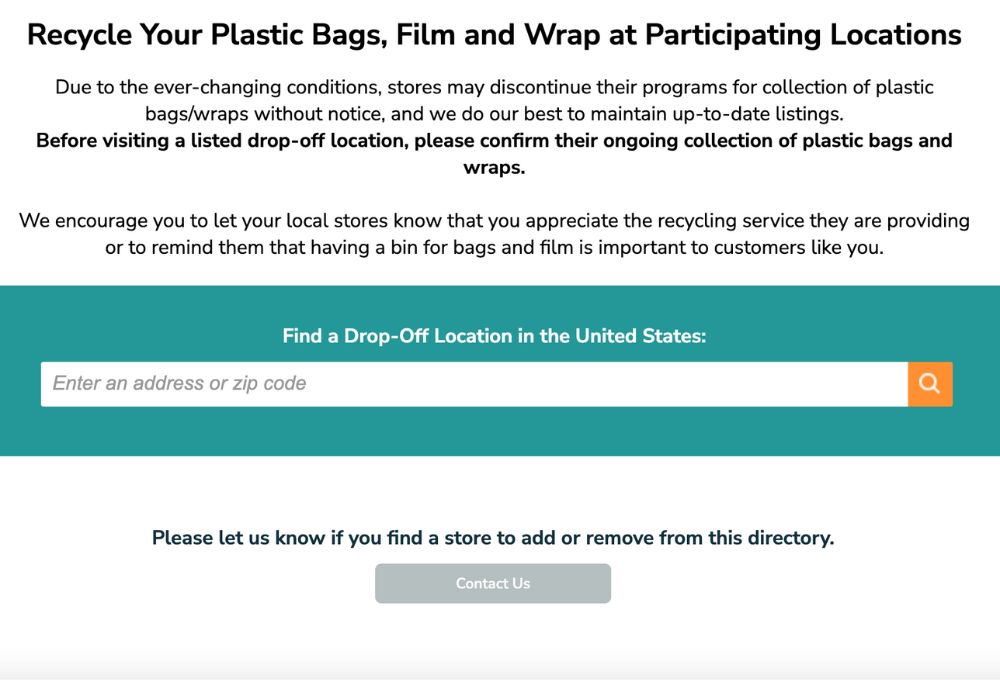
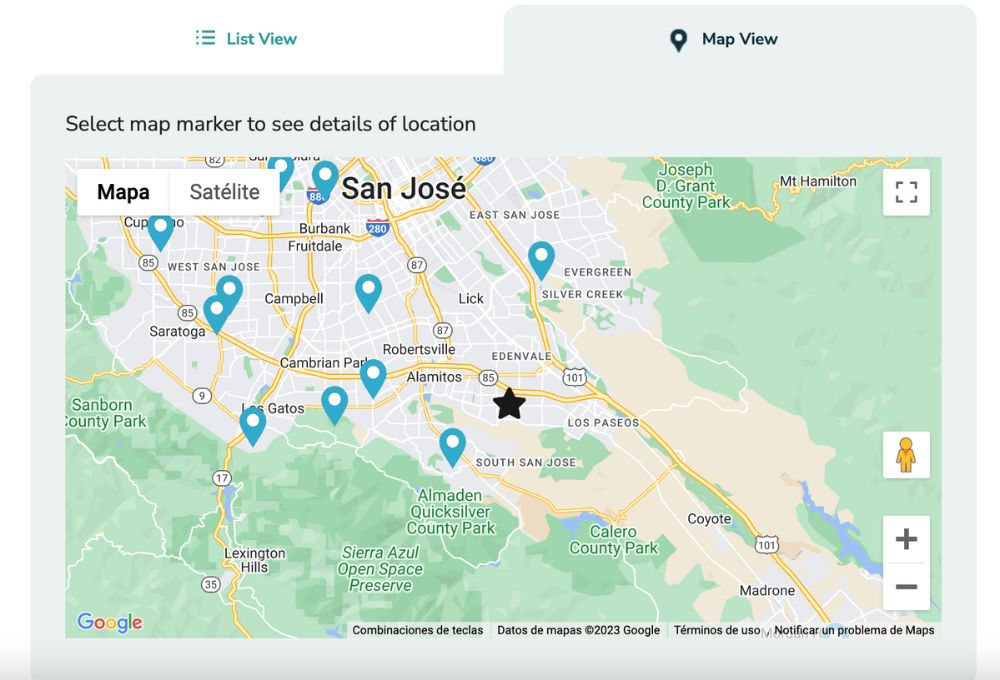
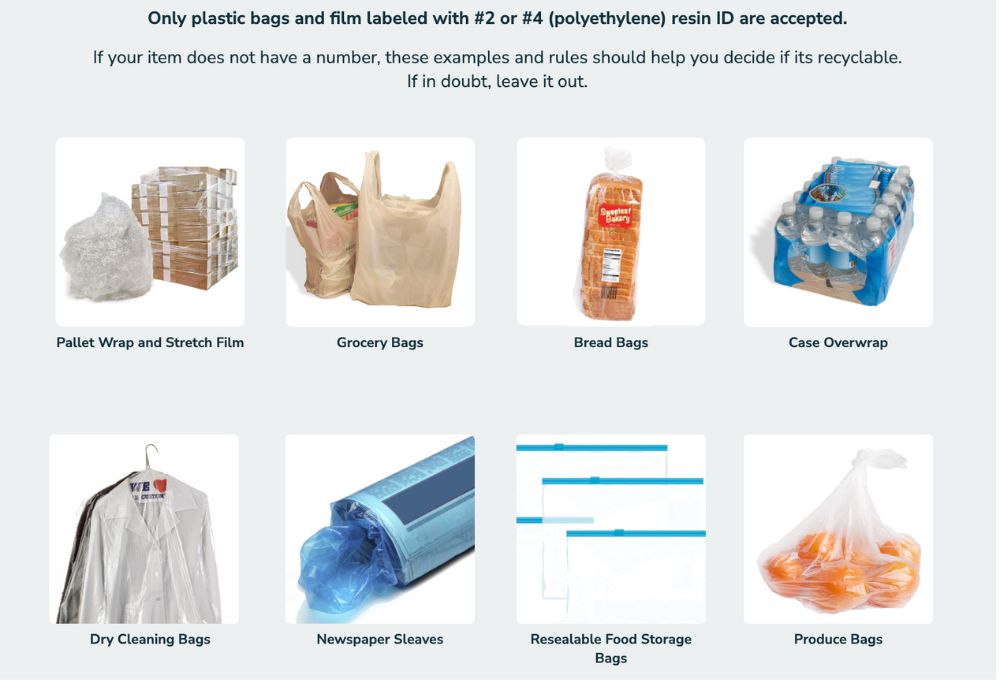
Tips for Reducing Plastic Bag Waste
More important than recycling is to reduce the consumption of plastic bags. Here are some tips you can start incorporating:
- Adopting reusable shopping bags for grocery runs and other shopping needs.
- Opting for bulk purchases.
- Using mesh produce bags.
- Repurposing old plastic bags for other purposes.
Alternatives to Plastic Bags
Reusable bags are a good alternative to plastic bags. They are sturdier, more durable, and can be used repeatedly, significantly reducing plastic bag waste. Here are some examples:

Cotton bag

Hemp bag

Jute bag
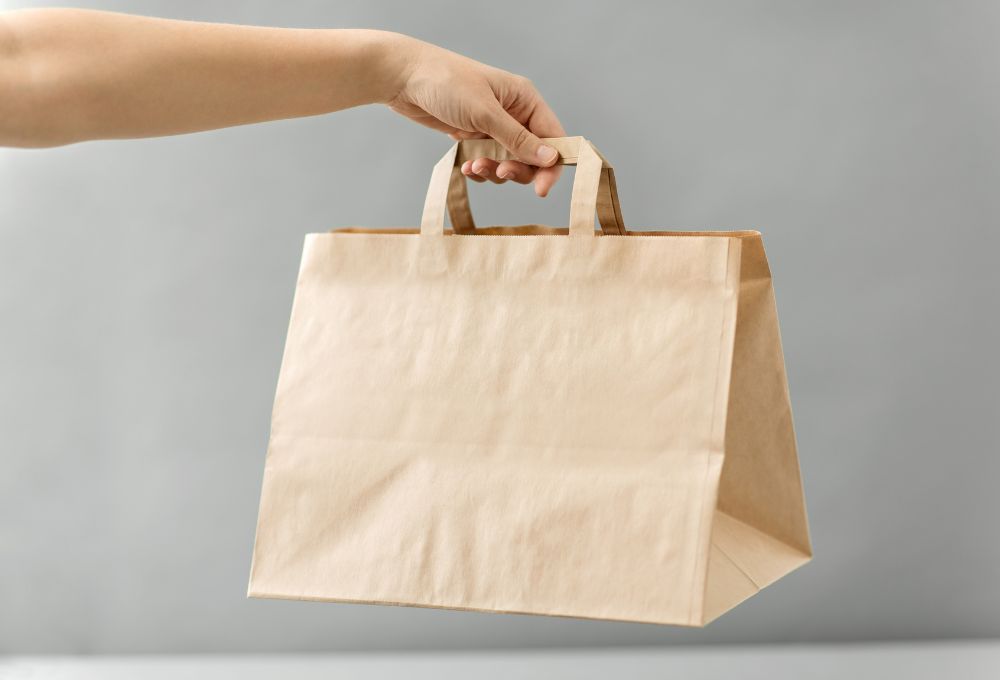
Paper bag
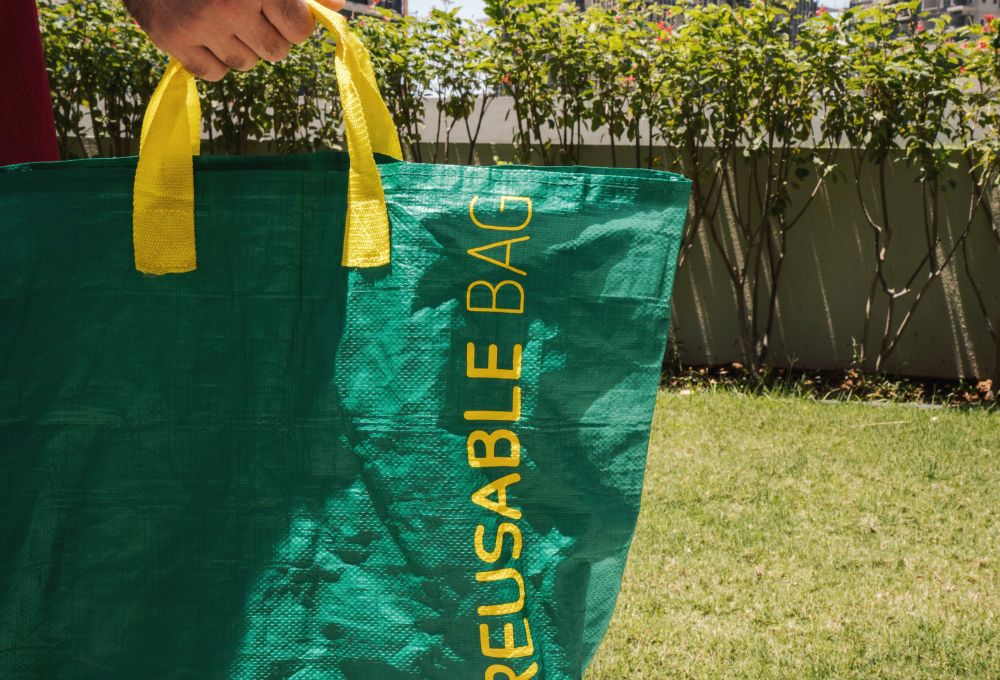
Polyester tote bag
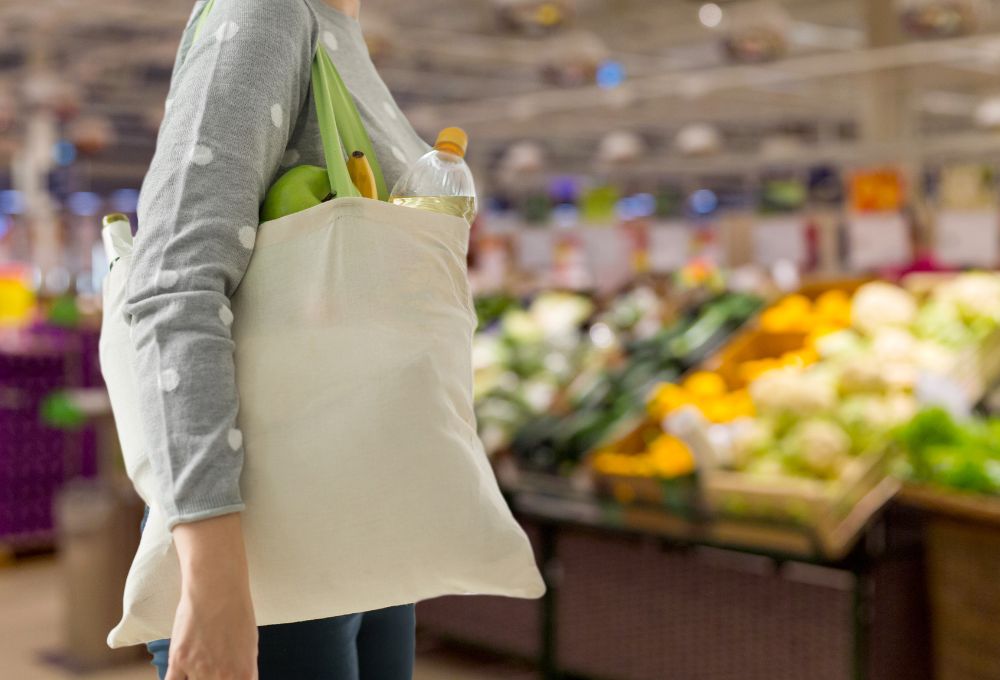
Recycled fibers bag
Final Thoughts
Making adjustments in our habits is a vital step toward addressing the global plastic waste crisis. While challenges exist, exploring alternatives and adopting sustainable practices can contribute to a cleaner and more sustainable future.
FAQs
Not all types of plastic bags can be recycled. It is important to check with local recycling programs or designated collection points to determine which types of plastic bags are accepted for recycling.
Plastic bags that are not recycled often end up in landfills or as litter in the environment. They can take hundreds of years to decompose and contribute to pollution and harm to wildlife.
Yes, many grocery stores and retail locations have collection bins for plastic bag recycling. These designated collection points ensure that plastic bags are properly recycled.
Yes, plastic bags can be reused multiple times before considering recycling. Using them for various purposes, such as lining small trash bins or carrying items, can extend their lifespan.
Biodegradable plastic bags are designed to break down more quickly than traditional plastic bags. However, their environmental impact can still be significant if they end up in landfills or oceans. Reusable bags remain the most sustainable alternative to plastic bags.

